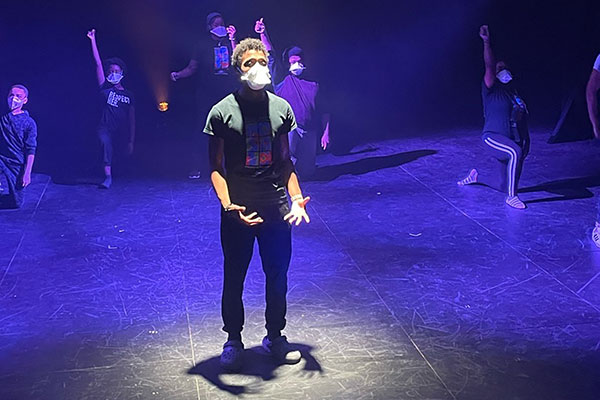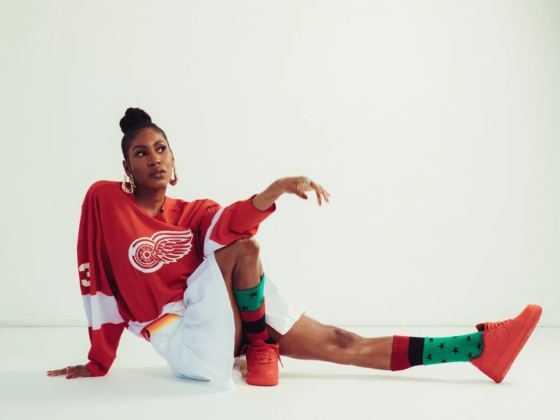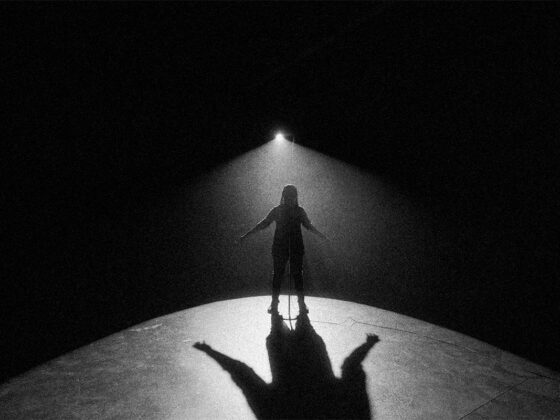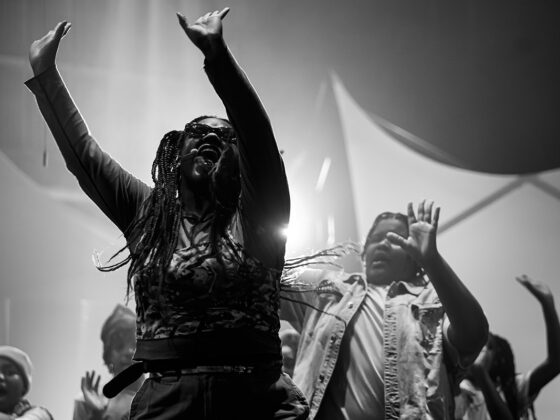 I’ve been thinking a lot about how we celebrate Black history month this year.
I’ve been thinking a lot about how we celebrate Black history month this year.
Whenever I ask young people, or anyone really, how they celebrate, they may talk about what they learned in school, what they’ve been watching on tv, or even maybe the ways that they engage with other Black people this month.
But one thing I don’t often hear is how they may be celebrating themselves and their own Blackness in February. Rarely does anyone speak to the ways that they are pouring into themselves, loving on themselves, learning about themselves, when it comes to a month supposedly dedicated to us. What does it mean to feel like celebrating Blackness doesn’t intrinsically mean celebrating yourself?
Then, I met Makayla, a student at Detroit Waldorf who seems to really be trying to personalize Black history month for herself this year. Instead of thinking about the ways that she’s traditionally learned Black history, Makayla is actively working to think about ways that she can daily acknowledge and strengthen her own connection with her Blackness, in ways like connecting to music through lyric analysis, watching speeches without an academic obligation, and more.
When I asked her how she liked to celebrate, Makayla spent a long time thinking, and even more time explaining that she didn’t really know what she should be doing to celebrate–or even if there was a should.
And that really got my mind spinning. How have we historically taught Black youth to celebrate this month in a way that means something for longer than this month? How can we use this month as a conversation-starter, and NOT the entire conversation, about loving your own Blackness and learning to see your identity as something that is worth exploring and celebrating?
I decided that this week I would work on a list of ways that I worked through my Blackness in high school, hoping that even one idea inspires another Black person to do the work this month on themselves. I also hope that this inspires those responsible for teaching us to think of different ways to make Black history personal to us–almost every student can tell me who Dr.Martin Luther King was, but I wonder if we could take that further and ask students how we see his values and dreams in our own lives.
Some Ways I Celebrate/Explore my Blackness
- Reading Black works/enjoying Black art
- Toni Morrison, Zora Neal Hurston, Ta-Nehisi Coates, and bell hooks are just a few authors that I like to prioritize. I think it’s important to get a good mix of historical context that we can use to make sense of our experiences today. It might help you understand why you feel certain ways about something you see everyday, or even just help you see the world and yourself in it differently.
- Makayla talked about how leaders in Mosaic didn’t just assign them Black songs to sing–they made them go through the lyrics line-by-line to think about what they meant. It’s easy to read an entire book, poem, song, etc. and never sit and think through what commentary the author, singer, etc. was trying to make. Try to think about these pieces in relation to yourself this month, and what ways you can relate them to your experience and personal growth, instead of just existing as something we read because the author is Black and amazing (which they (ALWAYS) are.
- Creating with other Black people
- Makayla and I agreed that there is nothing more empowering than singing a song written for and by Black people, WITH other Black people. She told me about a song that the singers created using similes that filled in the phrase: “Black is like____,” or “Black is ____.” She says that this was one of the moments that stood out to her, especially when it was time to perform the song. It’s important to use Black history month as a moment to build community with people who look like you, and doing that through art is SUCH an unforgettable experience.
- Try to learn about someone/something you didn’t before
- One message I’m constantly getting from young artists in Mosaic is that they learn about the same people every February in schools, at home, etc. I want us to start envisioning what it might look like for Black people to use this month as an opportunity to completely learn/unlearn something about Blackness, and then make a commitment to put this into action. Is there a concept you’ve never got to dig into? A book you’ve always heard about but never read? A skill you’ve always wanted to try but couldn’t? A person who’s name you heard once but forgot? Use this month to start looking into aspects of Blackness you may not have considered before, and I promise that you will grow in your own self-love and celebration, too.
My interview with Makayla really has me thinking about how we are teaching our young folks to think about, and participate in Black history month. This month wasn’t created to continuously prove that Black people have historically been great–it’s to acknowledge all that we have accomplished and done in order to welcome in and prepare for more!
I’m no expert in Black history, but I am fairly confident in the ways that I have learned to understand, celebrate, study and exude my Blackness.
Imani Harris is a 2018 alumna of the Mosaic Singers. She is currently finishing her Journalism and African American studies degrees at Northwestern University. Imani is passionate about using her voice and knowledge to share Black stories, and especially to support and illuminate all the beauty that exists in the Black community.




